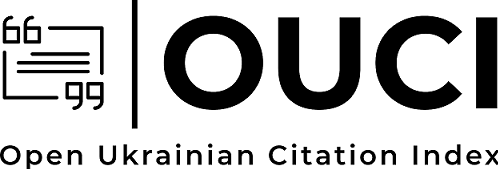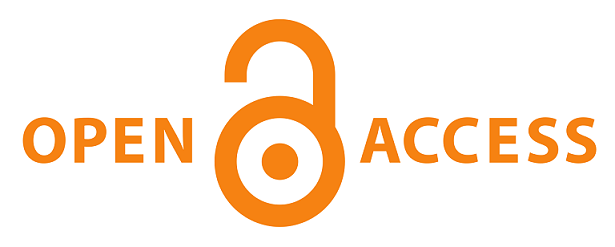BUND AND THE USE OF TERRORISM IN POLITICAL STRUGGLE (1897–1907)
DOI:
https://doi.org/10.28925/2524-0757.2018.2.6064Keywords:
Bund, terrorism, social democracy, labor movement, revolutionAbstract
The subject of this article is the views of the General Jewish Labour Bund in Lithuania, Poland and Russia (Bund) on the use of terrorist methods in the political struggle. An analysis of the evolution of party’s views on this issue is carried out on the basis of personal testimonies from members of the Bund, as well as documents of the Police Department. Chronologically, the article covers the period from the creation of the Bund to the end of the revolution of 1905. During this period, the revival of terrorism in the Russian political arena was taking place: the escalation of socio-economic and ethnic conflicts under the conditions of an autocratic monarchy had an inevitable consequence the surge of violence. The Bund, on the one hand, the Social-Democratic Party, and on the other — the leading political force of nationality discriminated against in the empire, faced on difficult choice. Official party resolutions condemned terrorism, since this method left the masses passive. The struggle against the existing regime in this case was conducted only by individual heroes. At the same time, attempts by the government to maintain the authority of the autocratic monarchy among the society were completed by the search for enemies, convenient to see in the Jews, especially given their low integration into the imperial society. Therefore, a situation need self-defense: at the initiative of the Bund the paramilitary formations are founded. In 1905 this formations played a role in ending of the pogrom wave, that rocked by the cities and towns of the West and South-West provinces of the Russian Empire.
Downloads
References
Agurskii, S. (1923). Borba protiv uklona na istoricheskom fronte (k voprosu ob istoricheskoi roli Bunda). Proletarskaia revoliutsiia, 11, 108–117 [in Russian].
Amiantov, Yu., Liashenko, K., Rozental, I., Peregudova Z., Tikhonova, Z. (Comps.). (2010). Bund. Dokumenty i materialy (1894–1921), Moskva [in Russian].
Buhbinder, N. (1925). Istoriia yevreiskogo rabochego dvizheniia v Rossii. Leningrad, Po neizdannym arkhivnym materialam, 338 [in Russian].
Gula R., Gula, V. (2016). Agoniіa Lefiafana. Chast 1. Passionarii i yurodivyie. Politicheskii terror i terrorizm v Ukraine (1900–1914 gg.), Kiev [in Russian].
Husiev, V. (1999). Bund v suspilno-politychnomu zhytti Ukrainy (kinets XIX st. — 1921). Kyiv, Candidate’s thesis, 36 p. [in Ukrainian].
Gusev, V. (1996). K voprosu o zarozhdenii bundovskogo dvizheniia v Ukraine (konets ХІХ — nachalo ХХ veka): novyie arhivnyie dannyie. Vestnik yevreiskogo universiteta v Moskve, 2/12, 104–133 [in Russian].
Dimanshtein, S. (1933). Bund na ІІ s’ezde RSDRP. Borba klassov, № 8/9, 106–112 [in Russian].
Kremer, A. (1922). Osnovanie Bunda. Proletarskaia revoliutsiia, 11, 50–56 [in Russian].
Maor, I. (1977). Sionistskoie dvizhenie v Rossii. Ierusalim [in Russian].
Panavas, Ch. (1972). Borba bolshevikov protiv opportunisticheskoi teorii i politiki Bunda (1903–oktiabr 1917). Moskva, 9 p. [in Russian].
Plekhanov, G. (1926). Znachenie rostovskoi stachki. Sochineniia v 24 t., Vol. XII, 270–277 [in Russian].
Sulimov, S. (1927). Masterskaia bomb. Boievaia gruppa pri CK RSDRP (b) (1905–1907 gg.): Stati i vospominaniia, 143–155 [in Russian].
Fond 41, Discription 1, Unit 11, 92–93, TsDIA Ukrainy (Tsentralnyi Derzhavnyi istorycnyi arkhiv Ukrainy, m. Kyiv).
Fond 41, Discription 1, Unit 2, 2, TsDIA Ukrainy.
Fond 57, Discription 1, Unit 68, 2, TsDIA Ukrainy.
Fond 57, Discription 1, Unit 81, 170, 174–175, TsDIA Ukrainy.
Shestak, Yu. (1980). Borba bolshevistskoi partii protiv natsionalizma i opportunizma Bunda. Moskva, 112 p. [in Russian].
Yuditskii, A. (1923). «Bund» v Cherkasskom raione v 1904–1905 gg. Letopis revoliutssii, 5, 136–146 [in Russian].
Published
How to Cite
Issue
Section
License
Copyright (c) 2019 Kyiv Historical Studies

This work is licensed under a Creative Commons Attribution-NonCommercial-ShareAlike 4.0 International License.
Authors who publish in this journal retain the right of authorship of the work and give to the journal right of first publication of this work under the conditions of Creative Commons: Attribution-NonCommercial-ShareAlike 4.0 International (CC BY-NC-SA 4.0), which allows others freely distribute the work published with reference to the authors of the original work and the first publication of this magazine.














